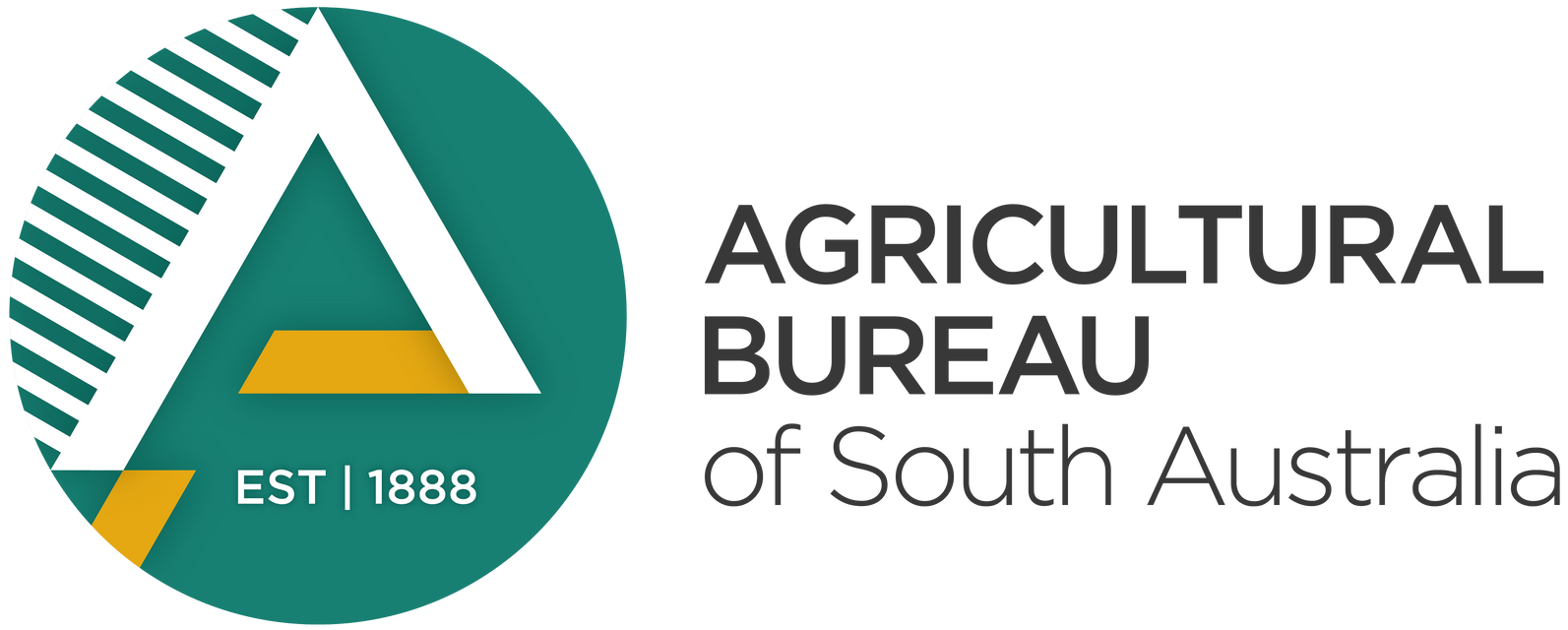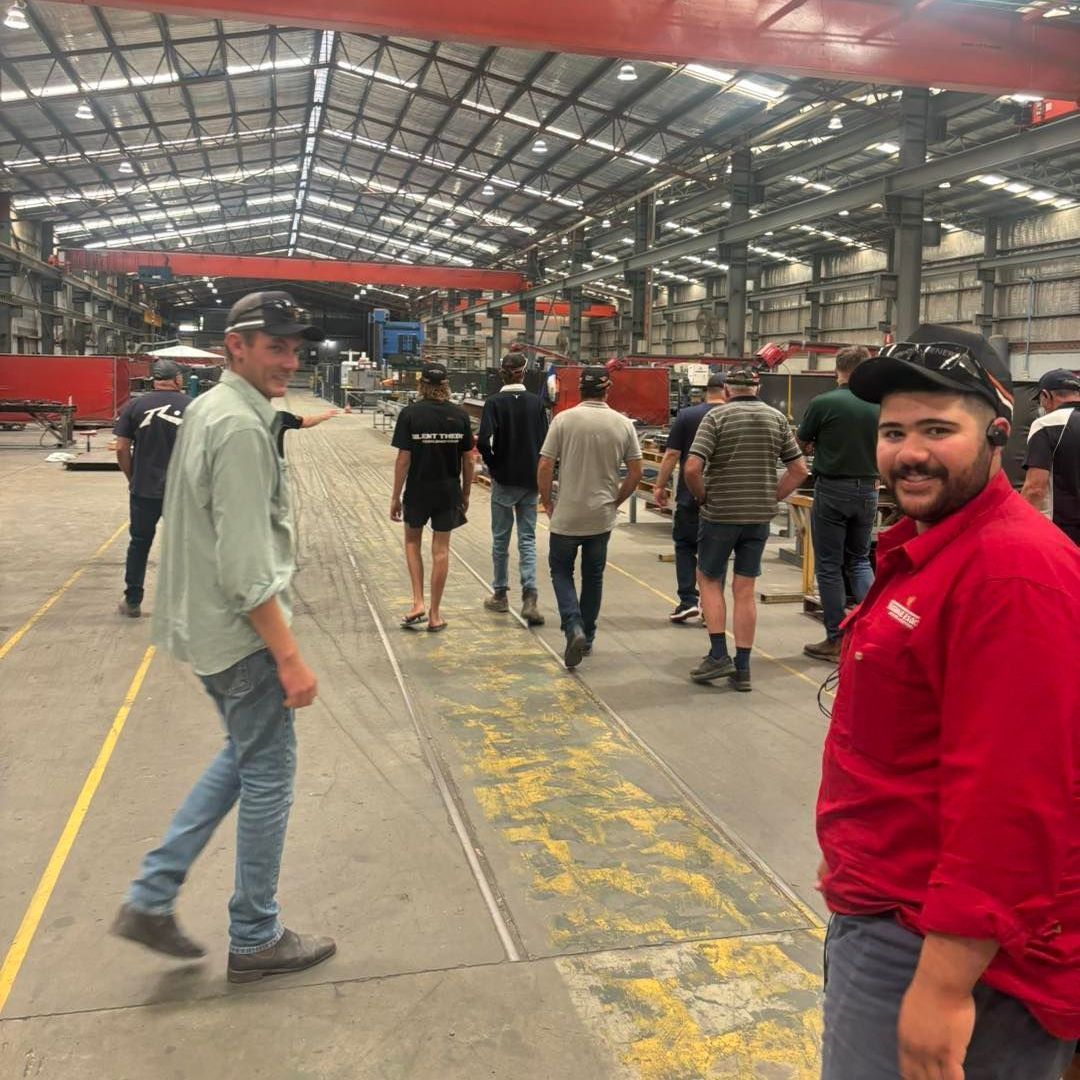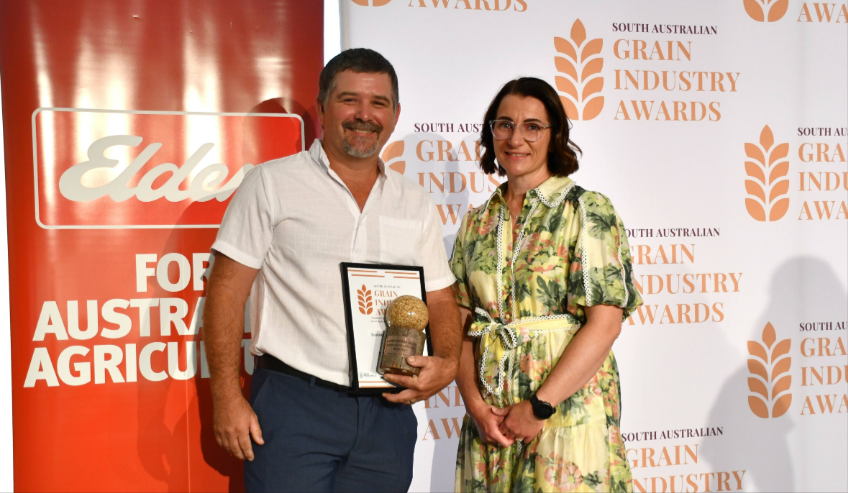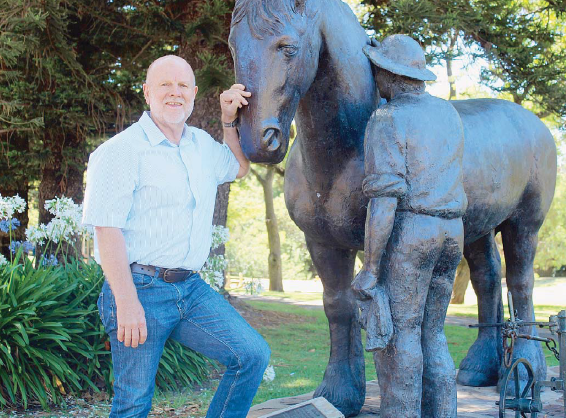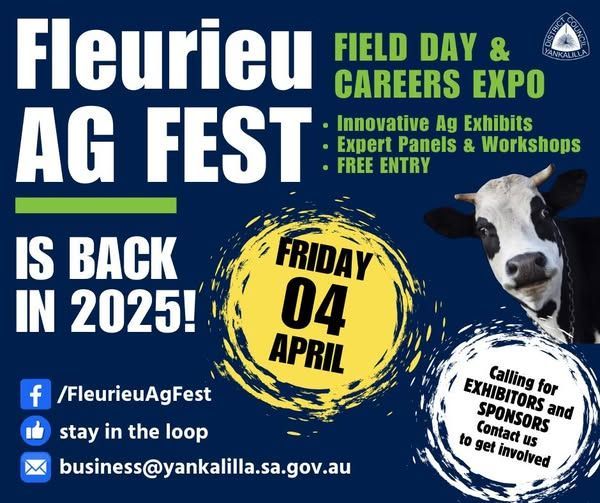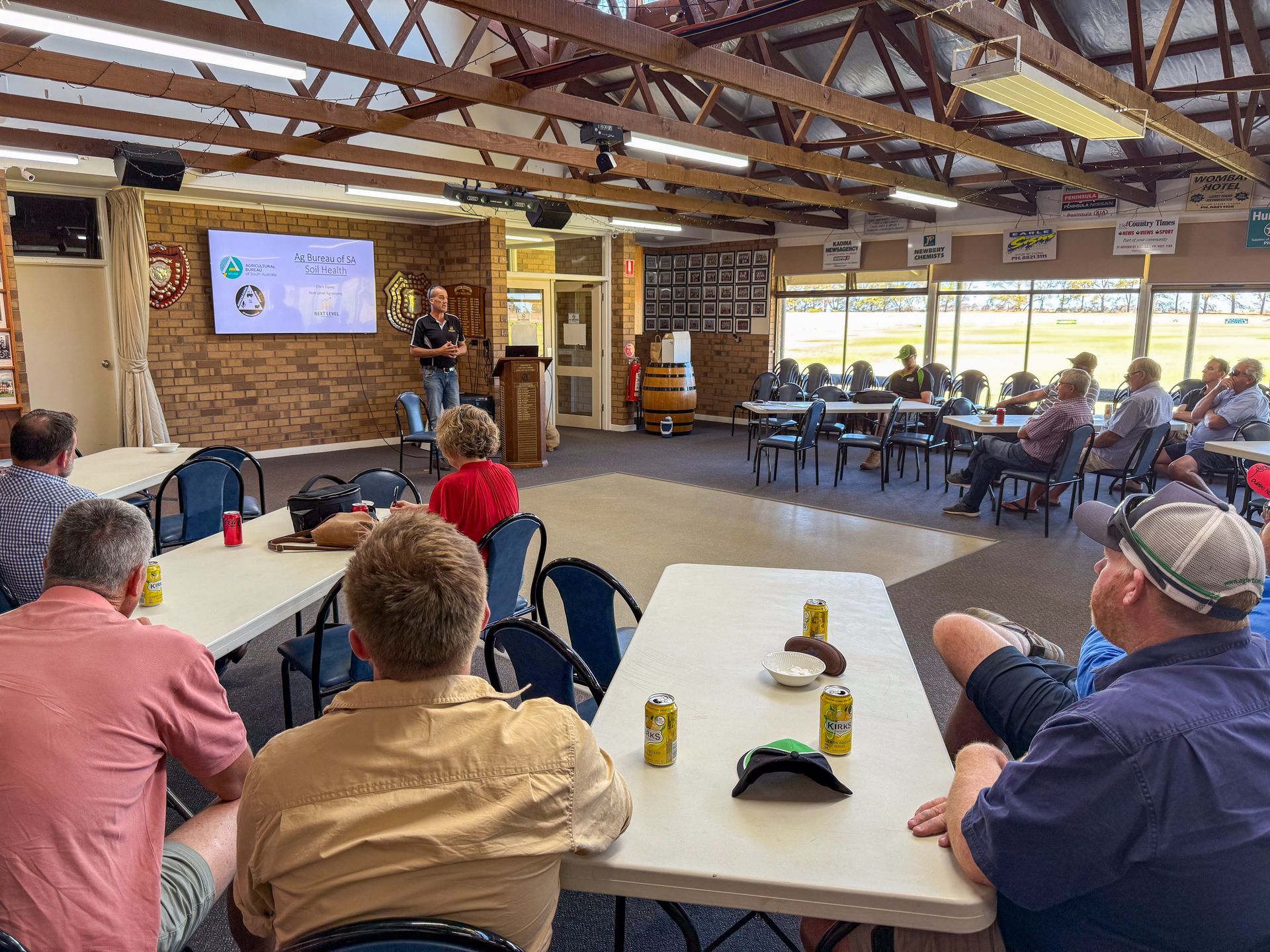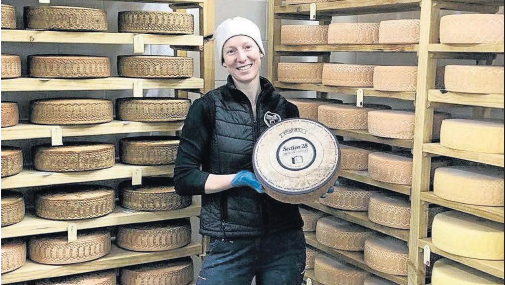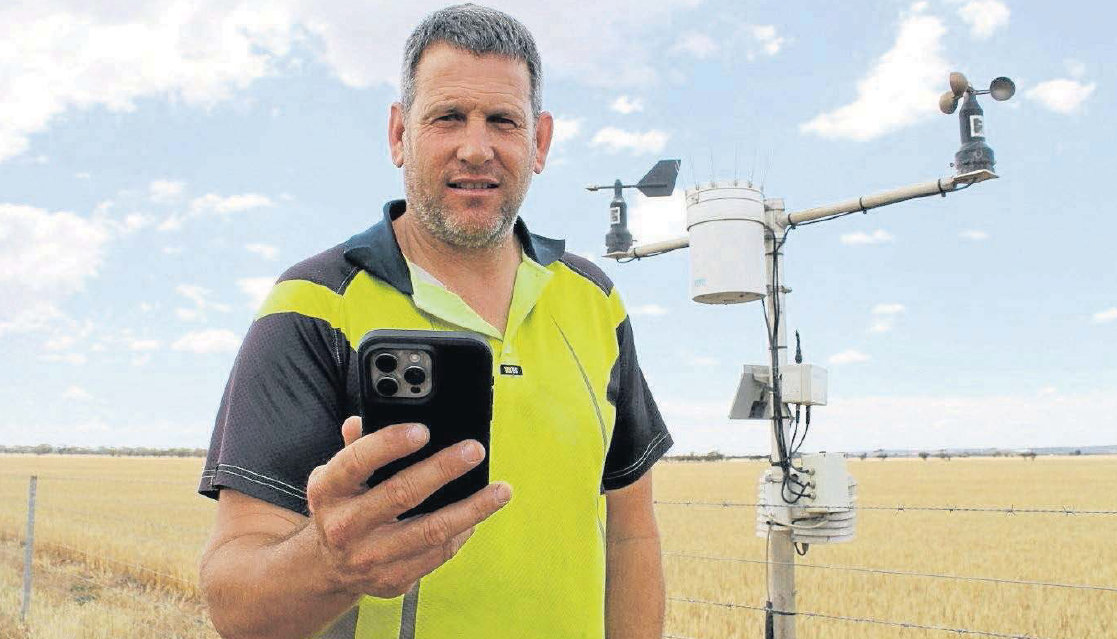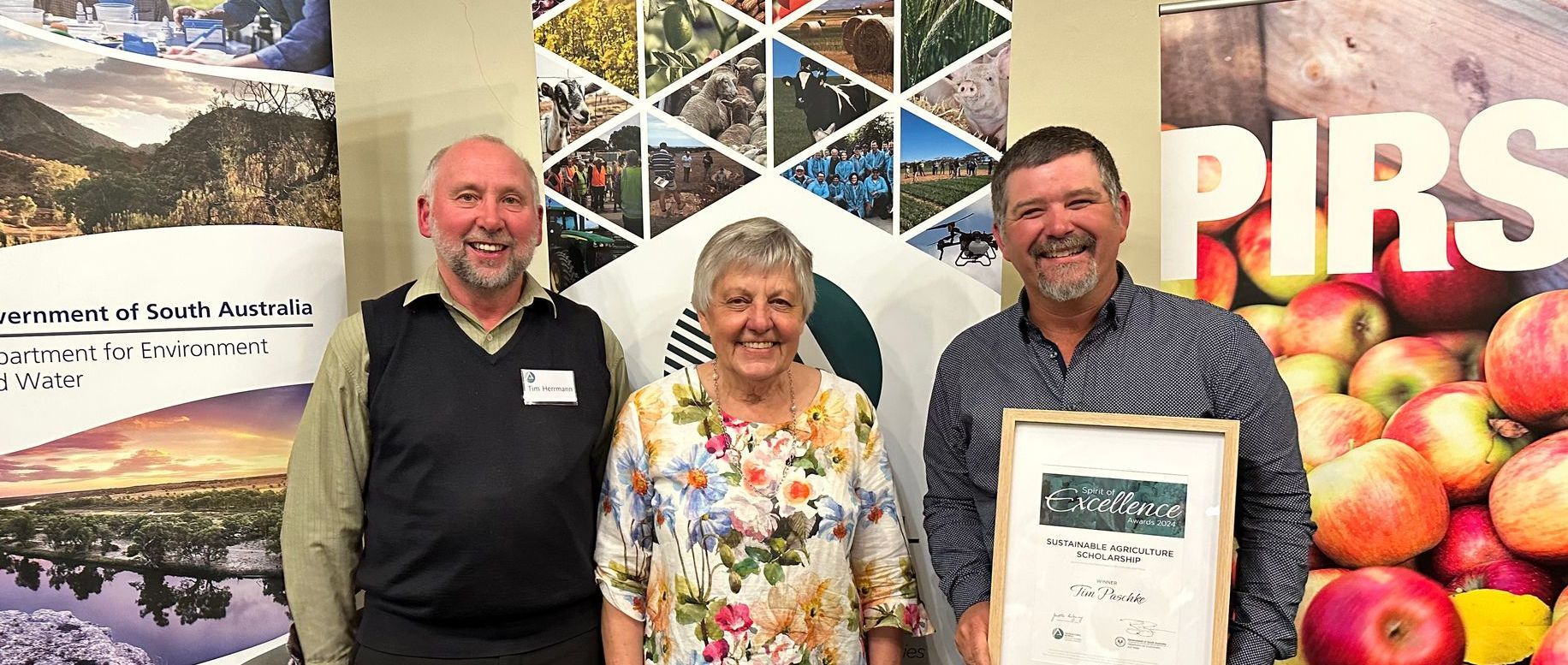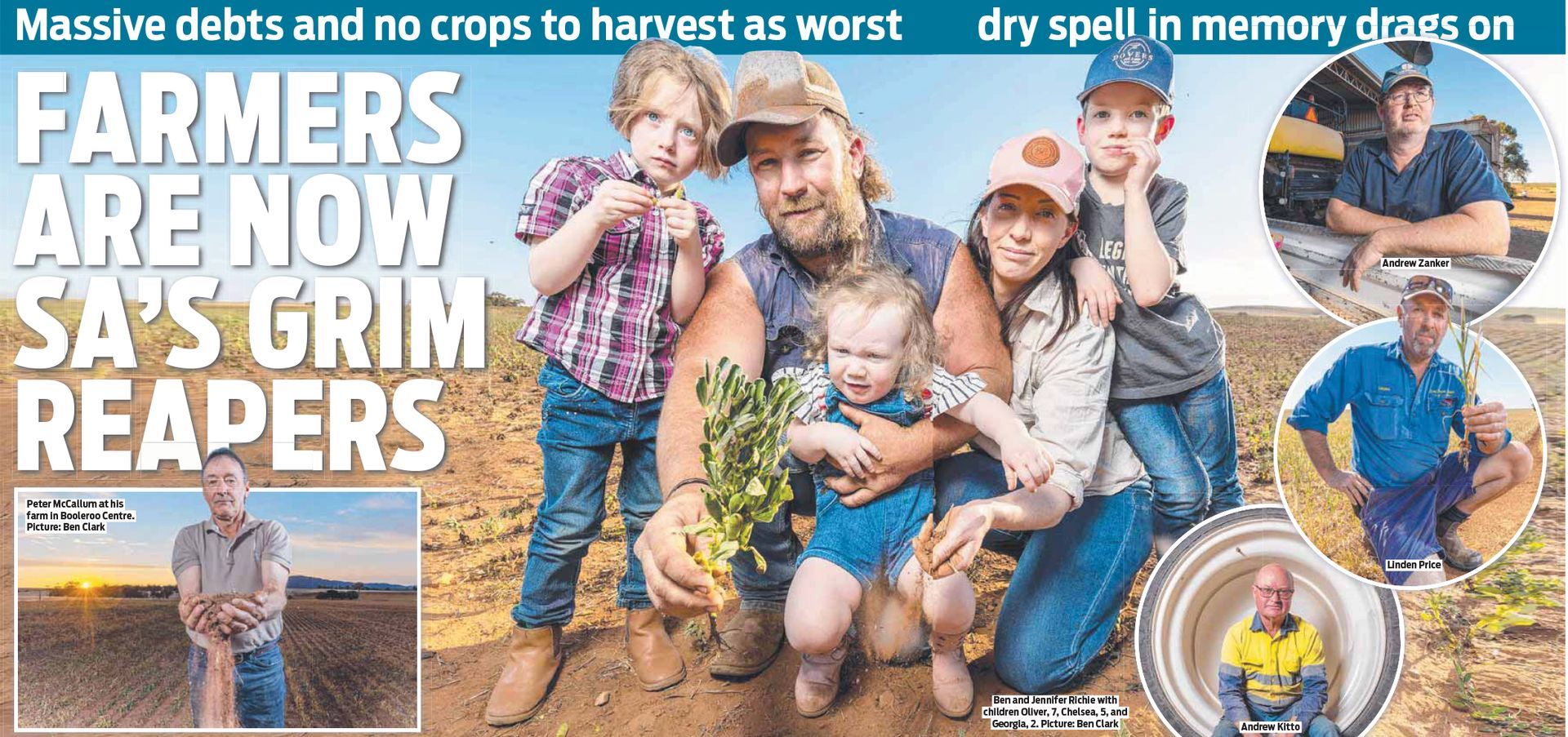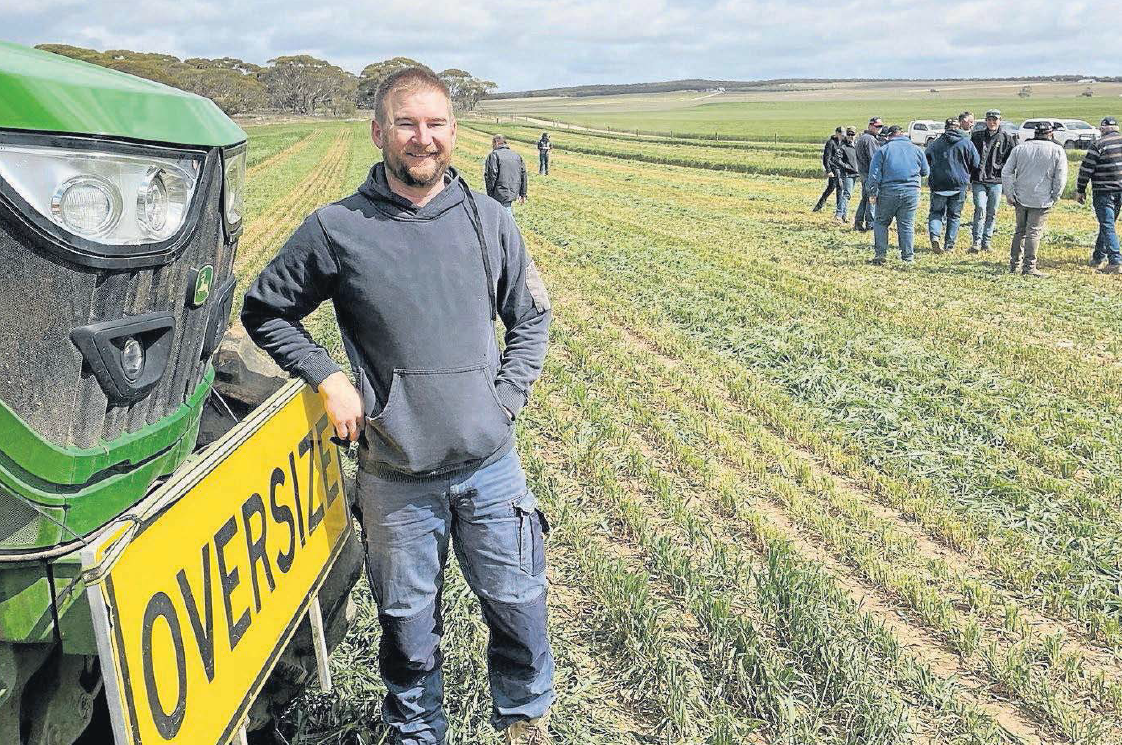Soil and leaf testing to elevate orchard management practises
As published in The Stock Journal by Kiara Stacey
December 6, 2024
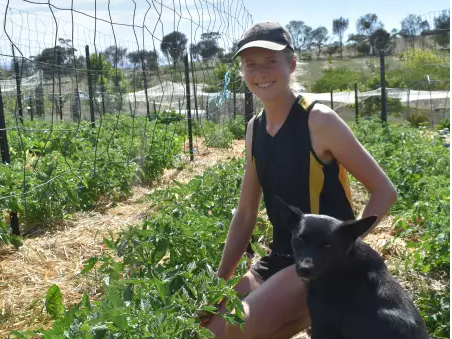
Taralee Orchards operator Renae Kretschmer, Wirrabara, with dog Pip, in the tomato row of the vegetable garden. Picture by Kiara Stacey.
Business diversification has helped a southern Flinders Ranges organic orchard stay afloat with "a focus to mitigate climate risks and rely on native wildlife".
Taralee Orchards operator Renae Kretschmer, along with her brother and father, have a biodynamic stone fruit orchard, Air BnBs, livestock and a large market garden over 68 hectares at Wirrabara.
Renae competed for a bursary (2024 Rural Youth Bursary) at the SA Ag Bureau Ag Excellence Awards in October, with her idea to carry out soil and leaf testing as well as completing a market gardener masterclass.
While Renae did not get the bursary, she still has plans to complete soil and leaf testing within their 4ha orchard.
"Over winter, when the trees don't have their leaves, the sheep are in the orchard, and even through summer, we've got the geese and the ducks, and they're all under the trees, clearing up all the diseased or fallen fruit," she said.
"That's the natural pest control that we use and something to do with soil testing in different areas of the orchard would determine whether certain areas do need extra cover crops grown, or other methods that they can recommend, especially for compacted or shallow soils.
She said the soil testing would enable her to work out how to improve the shallow soils, or the soils which are quite calcareous.
"You can get a lot of agricultural output from an orchard in a small area," she said.
"But we are growing the trees in those areas which actually suit that land, rather than the other way around of trying to fix the soil and then plant a peach tree.
"We're just leaving the soil as is, still doing the biodynamic preparations, and then planting things like pistachios, pomegranates and nuts, which seem to do fine in those light areas of land."
Renae said the biodynamic preparations included a microbial spray twice a year.
"BD 500 is applied twice per year as a soil spray, and that's mainly to bring the microbes into the soil and get them functioning," she said.
"It contains things which really enliven the microbes, and then they are the ones that break down the organic matter and provide the fertility for the fruit trees.
"We don't actually put fertilisers out and when you think about how much fruit comes off a tree with no artificial inputs, it's quite amazing. So the microbes must be doing something under there."
She said due to being an organic operation, they don't have hefty input costs from sprays and chemicals but, in turn, their produce wouldn't be as big as traditional orchards.
"We're not heavily irrigating, we're not putting nitrogen fertilisers out, so the fruit is smaller," Renae said.
"But the flavours are so much more intense, and we're finding people are accepting that being organic, you're not going to get these perfectly round apricots with no spots.
"The soil tests would be a long-term project, we would see results instantly as it would take time to establish the plants in the right places."
Renae attends country markets most weekends to sell their produce and has an organic wholesaler in Adelaide, who buys their first-grade fruits.
"We have many farm gate sales too, where people will order a box of fruit," she said.
"We're not really sure with the future climate, there could be droughts more frequently, and rain events that come at the wrong time for us.
"But we are trying to manage the land so that with all the different varieties we have, something will grow well, or something will do well, even in a bad season."
